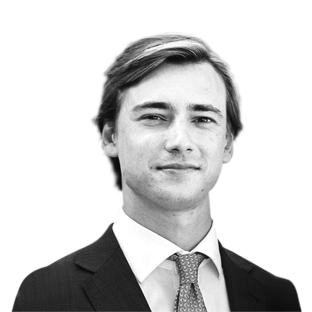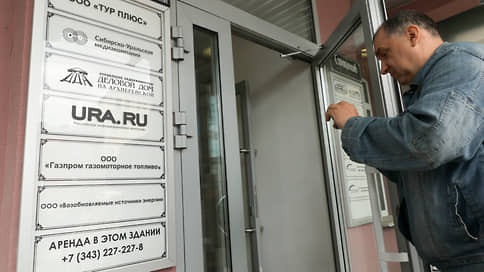The Netherlands remains the most desirable of the Bulgarian candidate students, the annual fee is over 2500 euros

The Netherlands continues to be the most attractive country for higher education for Bulgarian candidate students because of the great selection of English language specialties and good financial conditions. Following the release of Britain from Brexit, Spain and Italy, more and more programs in English and Bulgarian students are also reorienting themselves. An increase in the nominations of the Bulgarian adults is also evident for private higher education institutions. These trends for the latest candidate campaigns have outlined Milena Gencheva, managing director of the UNIFY higher education consulting firm and a career consultant.
On Saturday (March 1), over 700 students and parents visited the UniexPo 2025 higher education exhibition at the National Palace of Culture. At the exhibition 26 universities from abroad presented their bachelor's and master's programs.
Students and parents had the opportunity to ask their questions to the representatives of the higher education institutions about the conditions of application, the deadlines, the requirements for profiling subjects in grades 11 and 12, the annual fees and the financing opportunities.
| Gencheva commented to Dnevnik that the Netherlands ranked first among the preferred countries for higher education. The reason is the great selection of international specialties, good financial conditions – low annual fees and additional state funding. |
This allows students to support themselves without the need for parental support, she added. According to her, the Scandinavian countries also aroused great interest as they offer free higher education with an innovative approach. The universities there are defined as prestigious, but the reception is difficult because of the high competition and the quotas in specialties.
The minimum reception balls: why do universities not announce them and is it a problem
Gencheva adds that Italy and Spain also stand out as sought after destinations for Bulgarian youth. Following the release of Britain from Brexit, which was previously among the most preferred countries, these countries significantly increase the number of programs in English, which expands opportunities for international students.
Students choose computer, engineering majors and design

She also emphasized the growing interest in private universities that are more flexible than state-owned. « They quickly adapt their programs to current trends and maintain a close relationship with the business, attracting industry teachers. The classes are smaller in them and the training is more personalized, » Gencheva said. According to her, private universities often partner with companies that directly offer positions to graduates.
He notices that more parents are directing their children to private universities, including the American University in Bulgaria because of the competitive environment and the opportunities for contacts and professional development.
| Gencheva commented that Students mostly choose computer and engineering majors, business, graphic design, computer game designS |
« For the first time since the Covid -19 pandemic, there is a growing interest in the specialties » Tourism Management « , » Hotel Management « and » Event Management » – areas to which students were not interested during the pandemic, » she said.
As a career orientation specialist, Gencheva stressed that the choice of these specialties is currently strategic, as most experts predict that in the years when current adults will graduate, tourism will reach their new peak. « This will create a high demand for staff, and the graduates will be few in number, which will make them particularly competitive in the labor market, » Gencheva explained.
Vacancies are more than students, especially in the specialties with shortage of staff
He added that students are excited about specialties related to artificial intelligence, but consultants recommend that the bachelor's degree be a computer specialty and then students specialize in the master's program.
Over 20 universities in Europe are visiting the exhibition
The exhibition was attended by schools from 26 countries, including the Netherlands, Belgium, Germany, Italy, Spain. The event was also attended by current students who shared their experience with the candidate students.

The biggest were the queues in front of the stands of universities from the Netherlands, Belgium and Italy.
Maria Vladimirova and her daughter Stephanie stood in front of one of the stands of the Netherlands. She is a student in the 12th grade and has already been conditionally accepted into two universities in the Netherlands in two different specialties – « Creative Business » and « International Communications ». Before Dnevnik, she commented that she began to navigate the specialties and universities in October, and only two months later realized that she had been accepted.
« My school profile is philosophy and Bulgarian. In my case, there was nothing more specific about profiles as requirements and I had no problem applying, » the matriculation said.
| Consultants advise students to start considering their future education in grade 10 before choosing their school profile, as some programs have certain requirements for profiling items in grades 11 and 12th. |
Search for accommodation early and more important tips for future students abroad
The mother adds that she and her daughter have decided to visit the exhibition to learn more about living conditions. During the event, they met with a student who currently follows one of the universities, and who told them her impressions and experience.

Annual fees
Gencheva presented the leading countries for higher education in 2025, with over 250 students and parents present in one of the halls of the National Palace of Culture. Most young people were students in the 10th and 11th grades, less the adults. Several ninth -graders had also come to get acquainted with the opportunities for education abroad.
She pointed out that Netherlands It offers the most in number of bachelor's programs in English among countries where English is not official language. He explained that the practice in all universities is that young people have two internships of 6 months, thus gaining experience in a real work environment.
In addition to the quality of education and the international environment, Gencheva stressed that it is also relatively accessible – the average annual fees are 2600 euros. The fee for all state universities is the same. Students can pay in installments or by student loan, whose interest is about 0.7%, she explained.
| For working students, the state also offers a student subsidy. The condition is for young people to study in full -time training and work 32 hours per month. In addition to the salary that, according to Gencheva, for these hours would be about 500 euros, the Netherlands will grant the student an additional 700 euros a month. |
As a disadvantage, you identified the problems of accommodation and emphasized that it was important for the search for an apartment to start early.
| According to her estimate, about 600 Bulgarian youths leave in the Netherlands every year. |
For education in Belgium Gencheva commented that it looks a lot like in the Netherlands. Many English programs are available that are practically oriented, with internships included. The annual fees at state universities are 1100 euros. An average of a hundred young people go to follow in Belgium, she added.
To the universities in Luxembourg Gencheva said that they were not practically oriented, but rather research. He added that annual tuition fees at state universities are from 400 to 800 euros.

According to her, education in Scandinavian countries is distinguished by one of the most innovative teaching systems. « There are no grades, there are exams that the student receives feedback, » she said. The programs include mandatory internships and the training is completely free. « However, it is more difficult to apply, there are only a few weeks in which applications are accepted, » the consultant explained.
In Spain The difference between private and state universities is very large, she said. State universities offer fewer English programs.
| It advises students to learn Spanish, even though their program will be in English. The state fee is between 1000 – 3000 euros per year. Private programs are entirely in English and fees range between 5,000 and € 25,000 a year. |
In Italy There are a variety of programs in English, she said. Fees at state universities vary between 1000 and 4000 euros a year, with Bulgarian students being able to apply for additional financial support. In private schools, fees start from 6,000 to EUR 29 thousand a year.
Europe is beginning to give way to: What are the best universities in the world (charts in specialties)
Germany is one of the leading countries for higher education in Europe, and in public universities it is free of charge or with very low fees. Gencheva explained that there is a fund funded by the state and other organizations in Germany, which fully covers the education of students at private universities. Students should only reimburse fees if they start earning € 30,000 a year after they graduate. If they do not achieve this income, they do not need to return the fee. « This serves as a guarantee for the quality of training, » she said.









